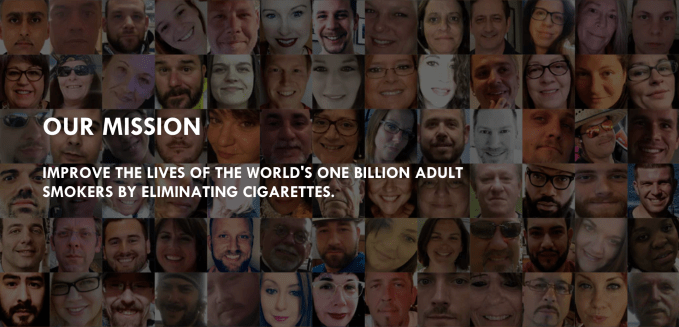Tech Nuggets with Technology: This Blog provides you the content regarding the latest technology which includes gadjets,softwares,laptops,mobiles etc
Sunday, September 29, 2019
Elon Musk Unveils New Mars Rocket Prototype, Expects Missions in Months
Flipkart Big Billion Days Sale: Best Offers on Mobiles and Electronics
ETtech Top 5: Revised draft consumer protection rules, Growing ecomm festive sales & more
Shopping momentum brings relief to retailers
Grofers eyes $1B revenue by year-end
PhonePe in talks with ICICI Bank for UPI play
AION Capital puts $40 million in SME lender Clix Capital
Etail rules may include booking and streaming
A look at how tech firms and government keep failing to curb the sharing of child sexual abuse images, long after the PROTECT our Children Act was passed in '08 (New York Times)
New York Times:
A look at how tech firms and government keep failing to curb the sharing of child sexual abuse images, long after the PROTECT our Children Act was passed in '08 — Online predators create and share the illegal material, which is increasingly cloaked by technology.
A cracker of a start to e-commerce festival sales
[Thread] New UK-US treaty grants UK courts options similar to those of the US for obtaining message content, but won't change the status quo on E2E encryption (Alex Stamos/@alexstamos)
Alex Stamos / @alexstamos:
[Thread] New UK-US treaty grants UK courts options similar to those of the US for obtaining message content, but won't change the status quo on E2E encryption — It's really early on a Sunday, so while I sip my coffee I'm also going to try to clear up a lot of confusion about the CLOUD Act created by poor reporting by The Times (of London) and Bloomberg. Here is the original, incorrect story: https://ift.tt/2oET5AE...
WeWork proves that (venture) capitalism works
What’s the lesson of WeWork?
Here’s a startup that has been a darling of Silicon Valley investors for years, whose offices and CEO have been stunningly painted across the covers of major trade magazines and strategically deployed across major tech conference stages, including our very own. At its peak, the company commanded a valuation of tens of billions of dollars and was supposed to be on course for the stratosphere, joining companies like Google and Facebook.
And then it all came crashing down, in literally a handful of days.
It’s easy to point to WeWork’s potentially 75%+ valuation drop, its looming layoffs, the firing of its CEO, and the seeming compression of a whole heck of a lot of investors and employee equity as a sordid disaster tale of capitalism, and venture capitalism in particular. VCs — none more so than Masayoshi Son at SoftBank — constantly overbought, oversold, and overcommitted to a company that had pretty much no business fundamentals whatsoever.
So what’s the lesson of WeWork for venture capital? In a word, nothing.
Venture capitalism is about investing in bold bets with huge, outsized returns. It’s meant to be risk-adjusted, both at the valuation scale but also at a portfolio scale. VCs should be buying equity at the right price to take into account every individual startup’s risk profile while also constructing a portfolio that selects each of those risks for the best overall return.
For WeWork, much of those dollars were driven by SoftBank’s Vision Fund, which seemed to double down again and again on the company, even at loggerheads with its own limited partners. The Vision Fund made a bet, seemingly with reasonable access to internal information, and that bet turned out to be wrong.
But a bet it was.
Many bets in venture turn out to be duds. Sometimes you lose some of your money. Sometimes you lose all of it.
And then sometimes you make it in spades. SoftBank’s Son once invested $20 million into a fledging Chinese ecommerce company called Alibaba. That stake is worth around $100 billion today, excluding an $11 billion stock sale a few years ago that was recognized on SoftBank’s financials earlier this year.
This is the math that Son sees in venture: 111,000,000,000 / 20,000,000 = 5,550x. There is no other asset class on the planet that will turn a dollar into thousands of dollars like venture capital.
WeWork’s woes don’t change this base formula. Nor does the continual drop of Wag, which received $300 million from the Vision Fund and looks to be going through tough challenges.
In any portfolio, there are going to be losses. The infamous J-curve in venture, where losses materialize far faster than gains in the early years of a fund, is alive and well — even at the growth stage.
And WeWork isn’t even dead yet — it still has cash, and it will rebuild. Will it be the largest startup turnaround in history? Possibly. Could it go straight to bankruptcy? Sure. Will the Vision Fund make money? Well, it really depends on that preference stack and a thousand other variables to be determined in the coming weeks, months, and years.
It’s all so early. My guess is that we still have about five years to go before we really start to get sufficient information to evaluate the Vision Fund’s ambitions.
Along this line thoughI don’t think I just need to defend venture capitalism though, but capitalism itself.
Matt Stoller, who has made it his mission to target big companies including Big Tech, summarizes the WeWork situation as emblematic of “counterfeit capitalism,” a system of founding story myths and fake growth charts underwritten by venture capitalists trying to build long-term, sustainable monopolistic companies using predatory pricing to kill off competitors.
Yet, that narrative totally misses the point of what capital does, and what investment means. Very, very few companies (venture-backed or not) are profitable from day one. Opening a restaurant requires buying equipment and signing a lease well before any customer walks in through the front door. Ditto for software startups, which need to actually build software before a user will pay for it. Capital investment is the bridge between plans to execution and launch.
The question is how long should a company be unprofitable to goad sales and drive revenues? A decade or two ago, it used to be that companies needed to be profitable to IPO. But why? Why precisely then should a company slow down its investment and clean up its cash flows? Why not earlier? Why not later?
In fact, something great has happened in the last few years in the credit markets: at least some investors are increasingly positioning their portfolios for growth rather than cash flows. They are willing to wait for profits, sometimes for years.
Or, in other words, more and more investors are thinking long-term about the ultimate potential worth of a business.
WeWork could be profitable today. It could shutter its most recently opened locations, condense down to a handful of locations in major cities, and roll around in its positive cash flow. Of course the Vision Fund understands this. But why lock in small gains today when there is so much more potential lurking out there?
We should be cheering this behavior, and not castigating it, even if WeWork itself might turn out to be a dud. The lesson of this whole saga isn’t that capitalism isn’t performing. In fact, it’s precisely the opposite: (venture) capitalism is performing better than ever to invest in future, long-range growth.
Badass millennial women are supercharging startup investments
Across the political, social and economic stage, women’s issues are finally receiving heightened attention and priority.
There are more women than ever seeking political office; funding for female-founded startups is reaching record levels (even if they still have a long way to go to reach gender parity); a sizable cohort of female-founded and led companies have achieved billion-dollar unicorn valuations; and several women-led companies, including PagerDuty, The RealReal, and Eventbrite, have entered the public markets with successful IPOs.
What’s driving so much positive change?
Clearly, broadened awareness of gender and power issues, largely due to #MeToo, as well as an increase in the number of female investors, thanks to groups like All Raise, are all contributing catalysts. In addition, women now outnumber men in college, a majority of American moms are in the workforce, and in 40 percent of households those women are the breadwinners. But it’s more than that; I believe that there’s a profound generational shift afloat, and that this first wave of female-led unicorns is just the tip of the NASDAQ iceberg.
Unlike previous generations who may have either looked at self-investment as self-indulgence or who simply didn’t have the resources or technology available to make supplementary investments in themselves, today’s badass millennial women are unapologetic about their desire to invest in their own success and well-being. Determined to succeed without compromising their values or physical and mental wellness, these uber-empowered millennial women are making viable a new generation of startups to help them realize their dreams and feel comfortable in their skin. I refer to this economic wave as She-conomy 2.0.
For decades now there have been tech companies, which I refer to as She-conomy 1.0, catering to traditional and homogeneous identities of women primarily as shoppers and caregivers. In contrast, these new modern She-conomy 2.0 brands address latent, historically unmet, often un-discussed and under-served needs that speak to the multitude of other facets of our identities.
These companies have less to do with what women buy and more to do with their willingness to invest in themselves — in their careers and in their physical and emotional health and well-being. They are seeking and are willing to pay for products and services that help them advance their careers, feel comfortable about their bodies, and provide the physical and emotional support they’re seeking.

The founding members of Allraise (Image courtesy of Allraise)
Women are taking control of their careers and supporting each other.
More than two decades ago, when I had my first child, I joined a mom’s group at Stanford Hospital. We were all working moms trying to juggle career and motherhood. It was a truly challenging time for each of us. The group provided such helpful support that we met every Monday evening for five years until our kids were in kindergarten. Why Mondays? Because Mondays are especially hard for working parents, marking yet another week in search of balance. We realized that meeting on Monday evenings provided us with the support we needed to make it through the work week. Perhaps even more critically, it gave us something about Mondays to look forward to.
There’s something incredibly empowering about experiencing a major transition like a new job or new parenthood as part of a cohort. Sheryl Sandberg famously sought to institutionalize this kind of support for working women with her non-profit Lean In. It has dramatically raised awareness around working women’s struggles. However, individual Lean In group leaders are usually volunteers running these sessions on the side while working and shouldering life’s endless list of other responsibilities.
Now a new generation of organizations is offering this support — for a fee. As for-profit organizations, they’re doing so in a scalable, consistent and reliable way. Women don’t have to worry about whether the organizer will be able to carve out time to orchestrate a meeting because doing so is the organizer’s job. Chief, Declare, The Assembly*, The Wing and The Riveter are all examples of companies that are growing and thriving because they’re offering valuable space, support and services that women are willing to pay for. Most of these organizations initially targeted millennials, but women of all generations are benefiting and participating.

A look inside one of The Riveter’s Seattle co-working spaces.
Women are changing the narrative around previously taboo topics and promoting inclusiveness and acceptance of oneself.
It wasn’t long ago that mannequins, much like cover models, only came in one size. Now mainstream brands not only sell broader offerings; they increasingly showcase them in magazines, catalogs, stores and the runway. For example, Nike’s flagship store in London featured both plus-sized mannequins and para-sport mannequins for people with physical and intellectual abilities, and Rhianna’s new inclusive lingerie line regularly presents both plus-size and pregnant models.
Millennials (like all of us) don’t want to feel shamed; they want to feel empowered and beautiful. Instead of settling for frumpy, ill-fitting clothing or outdated product design, millennials are using their social media megaphones to tell the market what they want. Traditional companies like Victoria’s Secret have moved at a molasses-like pace to evolve from treating women as objects of fantasy to celebrating their right to feel great about themselves. Their antiquated practices have created the opportunity for new startups to create brands centered on body positivity. Some companies are filling largely underserved market needs by catering exclusively to larger and specialty sizes, and others are addressing previously taboo topics like body hair, which also contribute strongly to feelings around body positivity. Eloquii offers extended clothing sizes, Ruby Ribbon* and Third Love provide a wide sizing range of under garments and bras, and Fur addresses body hair and grooming.

Women are dedicating more attention to their own health and relationships.
Self-help books have been around for ages, but tech is paving the way for a new generation of services to provide guidance and support that are more convenient and targeted. At the same time, women are increasingly willing to discuss health issues that were previously taboo, like menstruation, menopause and perimenopause, fertility, and depression. Advancements in technology are making health-related self-care more accessible from the convenience of our wristbands and phones. Meanwhile, people are spending a disproportionate amount of their wealth on health, making the entire healthcare industry ripe for disruption.
All of these factors are making femtech big business. Countless new companies are helping women take more active control of their sexual health, including birth control and STI testing (Pill Club and Nurx), period tracking (Flo Health), fertility and egg freezing (Kind Body and Carrot Fertility), menopause (Rory, Genneve), postpartum depression and miscarriage (Maven) and even our relationships (Relish* and Bumble). In addition, no shortage of femtech companies are addressing period care, such as Lola, Cora, The Flex Company, Thinx, and Sustain Natural.
These companies are only viable because so many women — beginning with millennials but expanding out to the rest of us — are now willing and able to invest in themselves. United across a shared mission of female empowerment and inclusivity, She-onomy 2.0 is making it more realistic than ever to empower us to advance our careers, feel good about ourselves and stay healthy. Hats off to the badass millennial women leading this charge; we’re all better off professionally, emotionally and even physically thanks to you!
*Denotes portfolio company for Trinity Ventures
Facebook’s plan for our post-web future
Let us connect some dots. Five years ago, Facebook acquired VR pioneers Oculus for $2 billion. This week, it snapped up neural-interface pioneers CTRL-Labs for somewhere north of $500 million, and announced that its own massively multiplayer VR shared universe Horizon will launch early next year.
Oculus became (somewhat creepily named) Facebook Reality Labs, headed by Andrew Bosworth, one of the company’s first 15 engineers, who also headed the company’s transition from desktop to mobile advertising. It doesn’t take much imagination to see that he’s now in charge a much more interesting, and longer-term, transition: from the World Wide Web to whatever lies beyond.
Their big multibillion-dollar bet, the vision floating in Mark Zuckerberg’s crystal ball, is clearly that this new frontier is “cyberspace,” to use William Gibson’s term, or “the Oasis,” to borrow from READY PLAYER ONE, a copy of which was once issued to every new Oculus employee. Virtual reality, in other words, and/or maybe “mixed reality,” which combines our real world with virtual artifacts.
I can see your eyes rolling already. I admit mine are twitching skywards as well. AR/VR, like nuclear fusion and Brazil, have been the future for so long that it’s become a little hard to take that future seriously. Neuromancer was published in 1984. Jaron Lanier demo’d the first real VR headset and motion capture wearable, the EyePhone and DataGlove, more than thirty years ago. No wonder the notion of a shared global VR space increasingly feels like a retro-future.
But to Zuck’s credit, the path to change here is obvious and therefore plausible: use gaming as the bridge. Create the world’s first and best massively multiplayer online VR game. (The theory being it will be more immersive, and therefore more compelling, than Magic Leap’s mixed reality.) Use Facebook’s power, scale, and wealth to bring gamers in until there’s a thriving community of many million monthly users.
Then, transition to the larger vision, of VR slowly supplanting the Web itself; replace laptops with headsets, phones with overlays on smart glasses, and keyboards with neural interfaces. Not all at once, but bit by bit, as the Horizon gameworld gradually, over a period of years, becomes a platform for socializing and messaging and work as well as play. Then the Internet’s denizens won’t just visit Facebook’s web site, or launch its app; instead they will, literally if virtually, live in Facebook’s walled garden.
Is that vision more than a little creepy? You betcha. Is it one that’s likely to come to fruition? Well, no, I wouldn’t say likely. But I’ll concede it has a chance, one sufficiently nonzero, and sufficiently potentially spectacularly lucrative, that Facebook’s ongoing multibillion-dollar bet makes sense. Lucrative in terms of both money and implicit power. Like I said: more than a little creepy.
Of course this isn’t Facebook’s only vision of the future. It’s just one of their bets. Another is to essentially pivot from social-media advertising to messaging and transactions. You have to grudgingly admire their willingness to explore abandoning their current fantastically successful business model in favor of the untried and untested. Anything to disrupt the innovator’s dilemma.
Will this bet pay off? Will Facebook Horizon, plus VR and neural interfaces, be the gateway to “a consensual hallucination experienced daily by billions,” to quote William Gibson? While the odds are against it, it still seems to have a better chance than anything else on our collective horizon.
Week in Review: Corporate wickedness and mango Juul pods
Hey everyone. This is Week-in-Review, where I give a heavy amount of analysis and/or rambling thoughts on one story while scouring the rest of the hundreds of stories that emerged on TechCrunch this week to surface my favorites for your reading pleasure.
Last week, I talked about how streaming networks were undoing their advantages and making way for a renewed era of piracy.

Some mission statements leave an awful lot of room for collateral damage
The big story
In the startup world, moral relativism seems to be a guiding force. But in order for this system to work, you need some sort of north star for wrongdoing. That can be hard to find though, so often missteps from Uber or Facebook of some other startup are said to be drowning in nuance and plagued by numerous stakeholders.
But, thankfully, there’s Juul, a company that’s website is devoted to its values so that its real world impact doesn’t have to be.
This week, the startup’s CEO stepped down and was replaced by a Big Tobacco exec, a truly fitting development for a company that has long tried to maintain a moral high ground based on the alternative facts of the reality at hand. Things aren’t looking too good for Juul these days, but it’s not because the startup had a come to Jesus moment on its own, it’s because the White House and FDA are pissed and threatening to pull a nuclear option and ban flavored cartridges, which account for 80% of Juul’s sales.
Why? Because Juul’s fruity flavors were heading straight into teenagers’ hands, because they were too good not to traffic, addictive, some might say. Over the course of last year, high school student use of tobacco surged 38% thanks to a 78% surge in e-cigarette use, according to a report by the CDC. That, aligned with some unfortunately-timed mystery vaping disease possibly caused by counterfeit THC cartridges, has plunged the company into a regulatory crisis and Altria into into an identity crisis.
In December of last year, Altria bought 35% of Juul for $12.8 billion, in a deal that valued the startup at $38 billion. Following the deal, employees got massive bonuses, divvying up $2 billion in Altria cash, in large part to lessen the sour taste of a deal with Big Tobacco.
In the deal’s aftermath, then-CEO Kevin Burns tried to soften the optics, “We understand the controversy and skepticism that comes with an affiliation and partnership with the largest tobacco company in the US. We were skeptical as well,” he wrote in a statement. “But over the course of the last several months we were convinced by actions, not words, that in fact this partnership could help accelerate our success switching adult smokers.”
The deal was a hail mary for Altria, and one that increasingly appears to be heading to a receiver-less end zone. In the past five months, Altria has seen its share price slide 30 percent to a five-year low, largely as its redemption bet on Juul has faded as the regulatory environment has shifted in an extremely hostile direction. This all leads to this week, when the Burns stepped down as CEO and was replaced by Altria exec K.C. Crosthwaite.
In the case of Juul, the mission may have differed from the reality at hand, but it always made for a great story, a good one for execs and investors and recruiters and marketers and engineers and interns to tell when their ethics were called into question, but eventually the charade lifts and you get to see that the soul of your startup isn’t so metallic, sleek and full of Silicon Valley ideals, it’s just a different kind of tar black.
Send me feedback
on Twitter @lucasmtny or email
lucas@techcrunch.com
On to the rest of the week’s news.

Trends of the week
Here are a few big news items from big companies, with green links to all the sweet, sweet added context:
- TechCrunch’s Galaxy Fold gets damaged after one day
TechCrunch escaped a busted Galaxy Fold unit the first time around, though other reviewers’ issues led to a lengthy delay and a product rethinking, but in reviewing our “new-and-improved” Galaxy Fold unit, we suffered a damaged screen after just over one full day with the device. We were pretty generous in noting the things that it could have been the cause, but at the end of the day you shouldn’t have to handle your $2,000 smartphone with kids’ gloves. Read more here. - Amazon launches more Alexa devices
Amazon’s annual event — where they toss a bunch of Alexa-enabled junk into the wild — has come! Alexa glasses and Alexa rings, Alexa Echos and glow-y orb things. See them all here. - Facebook is officially preparing to ditch like counts (in Australia)
Facebook is ready to make a big change to how users see other people’s content, hiding how many likes posts have received in a test taking place in Australia. Read more here.

(Photo by David Ramos/Getty Images)
GAFA Gaffes
How did the top tech companies screw up this week? This clearly needs its own section, in order of badness:
- Facebook gives the politicians of the world a free pass:
[Facebook promises not to stop politicians’ lies and hate] -
Apple gives keyboard apps a bit too much access:
[Apple says a bug may grant ‘full access’ to third-party keyboards by mistake]

(Photo by Kimberly White/Getty Images for TechCrunch)
Disrupt SF
Our biggest event of the year is right around the corner and we’re bringing in some of the most important figures in the tech industry. Here’s who’s coming to Disrupt SF 2019.
- Ellen Pao, Tracey Chou and Harry Glaser are coming to Disrupt
- Bird CEO Travis VanderZanden talking scooters at Disrupt SF
In addition to taking in the great line-up of speakers, you can roam around Startup Alley to catch the more than 1,000 companies showcasing their products and technologies. And of course the Startup Battlefield competition that launched the likes of Dropbox, Cloudflare and Mint will once again be one of the biggest highlights of Disrupt SF.
Sign up for more newsletters in your inbox (including this one) here.
A profile of Netflix co-CEO Greg Peters, who led the company's successful crackdown on password sharing and is now pushing a focus on live programming (Lucas Shaw/Bloomberg)
Lucas Shaw / Bloomberg : A profile of Netflix co-CEO Greg Peters, who led the company's successful crackdown on password sharing and ...
-
Jake Offenhartz / Gothamist : Since October, the NYPD has deployed a quadruped robot called Spot to a handful of crime scenes and hostage...
-
Andrew Tarantola / Engadget : An adapted excerpt from the book “Your Computer Is on Fire”, on how voice assistants like Siri and Alexa al...